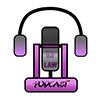
What Are Sources For Funding Long-Term Care In The U.S.?
Paying for long-term care can be incredibly difficult as prices rise and inflation continues to drive elder care facility pricing through the roof. However, that does not leave aging individuals in our society out of luck. Luckily, with the right Medicaid planning attorney to ensure Medicaid assistance, which is the primary method of funding long-term care in the U.S., you will have the resources and knowledge needed to ensure you are taken care of well into the latter years of life. However, Medicaid planning can be quite complex. Without the support of a trained professional, you risk losing qualification for it, even if you are in a situation where you desperately need it. While there are other sources and programs to help fund long-term care, Medicaid is the primary option for many folks later in life. Still, without the right attorney, you may not get the access to the financing you need to ensure you get the care you deserve.
How Much In Countable Assets Can A Single Person Have To Qualify For Long-Term Care Medicaid?
For New York State, the cap on resources an individual may retain to remain eligible is $30,182.00 in 2023 for Community and Chronic Care Medicaid. However, it is crucial to understand what goes into this calculation and how working with a Medicaid planning attorney can make a significant difference in ensuring this limit can be met in those situations in which an individual owns more. For example, it is crucial to distinguish which assets may actually be countable since there are categories of exempt assets. Additionally, there are strategies and methods to planning to meet this limit by the time an individual may need long-term care. From properly planning an estate to considering lookback periods, do not fret at such a low number. Still, to ensure you have the knowledge and resources to help you achieve this goal, it is best to contact a Medicaid planning attorney as soon as possible.
What Is The Medicaid Lookback Period, And How Does It Affect Medicaid Eligibility?
There are many factors that play into determining an individual’s eligibility to receive long-term care funding from Medicaid. However, one of the most important is the cap on countable assets an individual is allowed to retain before this funding is offered. Since this cap is quite low, it is common for someone to think that they may just be able to gift assets away or donate certain property to charity. This is not the case. In Deer Park, NY, as is the case with almost all states in the U.S., the lookback period for Chronic Care Medicaid eligibility is 60 months or five years. During this period, anyone who gifts or gives away assets without fair compensation would be disqualified for Medicaid for a period of time. So, before giving gifts to family members or making any sizeable donations to charity, consult with a Medicaid trust attorney to ensure you are not putting your long-term care funding at risk.
What Is A Period Of Ineligibility Or Penalty Period?
The Medicaid penalty period is a set period of time during which you would be required to privately pay for your care that results from gifting your assets away during the five-year lookback period. This lookback period is typically 60 months and can be violated by making a number of decisions that can affect your eligibility to receive assistance. In that case, there will be a calculation undertaken to determine the period of ineligibility for the applicant. To avoid this potentially significant penalty and to learn how to calculate any potential penalty period you may have incurred, it is crucial to consult with a Medicaid planning attorney. Since each state and region within the state interprets the rules differently, consulting an expert is always wise to mitigate and perhaps reverse the ineligibility period caused by your uninformed actions.
What Are Exempt And Non-Countable Assets?
Before explaining exempt and non-countable assets, it is important to understand that the cap for countable assets an individual is allowed to retain is $30,182.00 as of 2023. However, while this seems low, these are only countable assets. There is a list of exempt or non-countable assets that can be used to strategize with your Medicaid planning attorney to use for your benefit. The list of assets is the property that a Medicaid applicant will be allowed to retain and still receive benefits and includes the primary residence with equity less than 1.033,000.00 in 2023, irrevocable funeral trusts that would cover funeral costs and burial plans and a car. However, there are more strategies than may be applied to your situation, and it is crucial to consult with an attorney to get a full picture of what may hinder you when applying for Medicaid. Additionally, since each state has its own unique nuances, it is crucial to find an attorney you can trust in Deer Park, NY.
What Is Medicaid Estate Recovery?
After an individual has passed, who was enrolled in long-term care funding with Medicaid, the process may not be over just yet. Through a process called estate recovery, Medicaid will seek to recover its fees and costs through the estate of the deceased. Such costs could include long-term care and a variety of other services provided through Medicaid when the enrollee was still alive. However, an important consideration in NYS Medicaid planning is to avoid a probate estate, from which Medicaid could recover its costs through estate recovery. For this reason, it is vital to consult and work with a Medicaid planning attorney in Deer Park, NY, for the best chance at a favorable outcome.

Call Now For A Case Evaluation
(631) 800-0472

